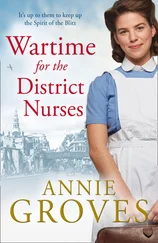Derby House was the Headquarters for Joint Strategic Planning, a combined operation involving both the Navy and the RAF, and Seb had seen the devastating losses the conveys were suffering thanks to the speed and accuracy of Hitler’s U-boats.
Churchill had given orders that no effort must be spared in capturing from the Germans one of their Enigma machines. These cipher machines sent signals between the U-boats and their HQ close to Paris, using special codebooks, and if one could somehow be acquired, British codebreakers at Bletchley Park would be able to decipher singals and so warn convoys of the U-boats’ whereabouts. But thus far no Enigma machine had been captured and the shipping losses continued to be very heavy.
Seb was part of a secret RAF Y Section, set up to listen in on and speedily record enemy Morse code messages, and he was waiting for the particular sender he was currently monitoring to start transmitting again. It was at times like this, with an air raid going on, the city devastated by what it had already endured, and other men putting their lives at risk to protect what was left of it, that Seb wished that he was playing a more active role in the country’s defence himself.
At the beginning of the war when he had been approached to work for SOE, using his radio operator’s skills to teach French Resistance cells the skills they would need, Seb had been working in the field in France in conditions of such personal danger that he had truly felt that he was doing his bit. But then with the German invasion of France and the BEF being driven back to Dunkirk, Seb had been recalled to England.
Dunkirk, everything it had been and everything it now represented for the way in which, by some miracle, tens of thousands of soldiers had been rescued from the beaches of northern France, was etched on his soul for ever. He had been lucky, but so many had not.
Back in Liverpool he had expected to be handling Morse code messages sent from France by members of SOE secretly landed there and from the groups of French Resistance he had helped train. Instead he had been put in charge of some newly trained Y Section recruits, dealing with military messages passed between the enemy.
Churchill insisted on seeing every day the transcripts of the messages monitored the previous day, a habit he had begun, so Seb had heard, when he had been First Lord of the Admiralty. The work demanded the highest level of concentration, and the kind of quick mind that could speedily recognise the variations in the ways different operators touched the keys of their machines. As Seb always said when he was lecturing new recruits, a wireless operator’s touch on the keys was as individual as a voice.
What they were doing was the other side of war, the hidden side. Where the glory boys of the RAF pursued their targets in full view through the skies, those members of the RAF employed on Y Section duties tracked theirs through countless recordings of Morse code messages. It took concentration, dedication and a special instinct to be able to recognise and follow a specific message sender; to recognise his or her ‘way’ of tapping out the Morse, to be able to block out the crackles, hisses and jamming devices used by the enemy as though they did not exist and to sense that moment when the sender was about to change frequency and plunge after them to keep track of them.
On a night like this one, though, when your girl was in danger and you weren’t, translating Morse code messages didn’t really feel much like a proper man’s work.
Seb looked at the clock on the wall in front of him. Just gone half-past three. With any luck the raiders would leave before it started to get light. As soon as he went off duty he could go up Edge Hill to Mill Road Hospital where Grace worked to check that she was all right.
Nearly four hours they’d been at it now, Luke thought bitterly, as he lay sleepless on his hard narrow army cot bed listening to the bombers sweeping in.
The defiant night fighters of 96 Squadron, based at Cranage, had been screaming overhead but had as yet failed to turn back the incoming waves of the raiders.
Luke and his men would be on duty at first light as they were part of a work party of three thousand soldiers detailed to help in the clear-up operations after the bombers had left, work they’d been engaged in every day since Sunday.
Tonight it sounded as though it was Bootle that was getting the worst of it. Thank heavens his family lived well away from the docks, up at Edge Hill, and Katie with them, although nowhere was safe.
From his vantage point on the roof of a building close to the Automatic Telephone and Electric Company, off Edge Lane, where he was doing his turn on fire-watching duties, Sam Campion could see as well as hear the waves of incoming enemy bombers.
All that was left of St Luke’s, the church that had been regarded by many as the most beautiful church in the city, was its tower and a blackened shell. The Town Hall had been hit, as had the New Royal Telephone Exchange in Colquitt Street, and on Duke Street various buildings had been destroyed. The city was at its last gasp. Flames and smoke billowed from newly hit buildings, and it seemed to Sam that there could be only one end to Liverpool’s magnificent fight against the Luftwaffe’s bombs.
Sam’s heart had never felt heavier, nor his emotions more intensely aroused. It was only now, looking down on the burning city, that he realised how much he loved it. Liverpool was being bombed and burned right down to its foundations, and yet not one word of concern had Sam heard spoken on the wireless, nor one word of praise for all that its people were doing to try to save it. Let London be bombed and the whole ruddy country knew about it, but when it came to Liverpool, the powers that be didn’t seem to care that the city was in danger of burning end to end.
The acrid smell of the smoke drifting towards him from Brunswick and Harrington Docks, and the Prince’s landing stage, stung his eyes, or at least that was what Sam told himself was the cause of his need to knuckle the moisture from them. The overhead railway had been hit and from Gladstone and Alexandra Docks Sam could see ships burning down to the water line.
High above him in the night sky, fighters from RAF Cranage were doing their best to drive back the raiders, and as Sam looked on, an RAF planes pursued one of the bombers, finally catching up with it over the Welsh hills. As he watched the defender bring down the bomber, and then looked down on the burning city, Sam admitted to himself what he had been trying to avoid since the blitz had started.
He might not be able to do anything to prevent his two older children from being exposed to the continuing danger – not with Luke in the army and Grace a nurse – but he could insist that Jean took the twins out of the city for their own safety and hers.
Exhaling on the decision, Sam felt his chest contract with pain. He and Jean had never spent a night apart in the whole of their marriage, she was the best wife any man could have and the only wife he could ever want, but it simply wasn’t safe for them to stay in the city any longer.
Lying awake in her comfortable bed in the cottage she was renting in Whitchurch, Emily Bryant too could hear the sound of the bombers on their way to Liverpool, fifty miles away from her new home in the small market town on the Cheshire-Shropshire border and surrounded by farmland. She had definitely done the right thing getting out of the city, and only just in time, judging by what she’d heard on Sunday when she and Tommy had made their first visit to their new church. Everyone had a tale to tell about what they’d heard about the pounding Liverpool had taken and the damage that had been done.
By rights she ought to be asleep. After all, they were safe enough here, with no need to go into some nasty uncomfortable air-raid shelter. She was a fool to have relented and left that worthless husband of hers with a decent sum of money in his bank account – money he’d no doubt spend on those trollops of his. He could, after all, have come with her and Tommy if he’d wanted to, but of course somewhere like Whitchurch would be far too quiet for Con.
Читать дальше












